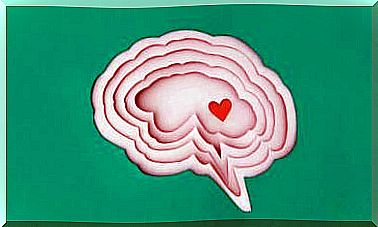When You Give Too Much (chronic Self-sacrifice)

Falling into a situation of chronic self-sacrifice, in which we can end up losing ourselves, involves significant risks. As human beings, it can be normal to want to invest our time and energy in people and causes that wear us down more than we can bear.
Thinking, therefore, that personal convictions and values are not usually sacrificed for the wishes and opinions of others can be a somewhat naive idea.
The denial of oneself and the surrender to the ideas and needs of others are factors that, as we observe in collective dynamics, hardly seem to worry us, when perhaps they should.

What is chronic self-sacrifice?
Sacrificing oneself for others, giving for another or other huge amounts of our own being -often unconditionally-, tends to suppose two realities that can hardly be denied :
- The need to overcome a conflict of values. Namely: one’s own and those of the person for whom one is sacrificing.
- The acceptance of a situation of resignation : the resignation of our own ideas, needs or desires.
Sacrifice arises at the moment in which, in the interaction with another being or situation, we must renounce personal good or immediate attention to ourselves; self-sacrifice goes even further, since it involves the surrender of a part of ourselves.
Since self-sacrifice usually entails the self-denial of the satisfaction of certain personal needs or desires, as well as of some pleasure or objective, it is in essence a renunciation of a valuable and important part of ourselves ; a renunciation of our dignity, and even of our identity.
Altruism, although it is usually a trait appreciated by society in general, can take an extreme form when self-sacrifice is exceeded in amount or duration; also when an excessive amount of well-being is subtracted from the person who is sacrificing himself.
For this reason, sometimes, self-sacrifice can be dysfunctional or maladaptive for the person who gives everything of himself.
When self-sacrifice results in pathological altruism
The list of examples of forms of self-sacrifice is endless : from people who sacrifice themselves without regard for a specific cause, to parents who almost lose their lives for their children, to people who give everything for their partner, pawning in it your own happiness and well-being.
But when a person accepts self-sacrifice to the point of chronicity and makes it a way of relating and facing life – and not a specific event or person in a specific way – they may run the risk of losing part of their essence as person.
Chronic self-sacrifice could suppose a pathological altruism – that is, giving too much of ourselves – when the person stops valuing himself, and therefore, stops giving priority ; thus, the I itself would be relegated to the background.
This erosion of the importance of oneself can lead to the fact that one’s own needs tend to never be satisfied, and that they are practically at the mercy of those of others. This, as can be expected, could lead to the development of negative feelings towards oneself.
This situation can lead to a state, practically, of invalidation of the conscience of oneself, or of the inversion of the scale of values, or of the violation of the rational judgment and the self-esteem of the person. In short: chronic self-sacrifice can take away from the person those factors that define their own essence as an individual.

How do I know if I am giving more than I am receiving?
There are a few signs you can look at to try to figure out if yours is a case of chronic self-sacrifice. Among them, the following stand out:
- The amount of help you provide is not sustainable over time ; By helping, you find that you don’t have enough time, energy, or resources for yourself.
- When you prioritize your own wants, needs, or opinions, you tend to develop feelings of guilt.
- At times, you feel a great emotional void, which would arise from the lack of satisfaction of your own needs for love, affection and attention.
- You feel like you constantly need to make some kind of sacrifice to keep others happy.
- Your sacrifices have become an obligation that you make to yourself, whereas initially it was something that you offered voluntarily.
- You often catch yourself saying yes, when you know that the most appropriate answer is no.
A strategy that some authors, such as Ayn Rand, have proposed to counteract this tendency to self-sacrifice – which, moreover, is usually reinforced by society itself – is the propping up of one’s own moral ambition.
Bottom line: In order not to lose ourselves to chronic self-sacrifice, one of the most effective antidotes is to truly care about one’s own interests.
The solution might be to practice, so to speak, a form of selfishness or controlledness that is rational and not aggressive. Why not try not to lose yourself, if you can help it?









